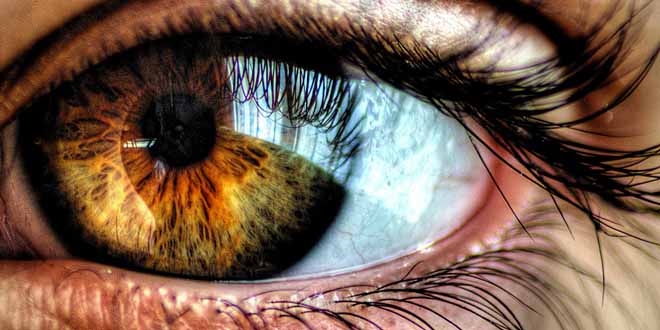
5 Top Foods for Good Eye Health
‘My eyes are my favorite part of me-not for how they look, but for how they see.’-Chris Sebastian.
Eyes are the window to your soul, the definition of your emotions at any time. But more than anything, eyes give you sight. You need them to walk, eat, read and write, and register your surroundings. The list can go on forever
How Do Your Eyes Work?
Like many organs, eyes are also in a pair. Each eye works like an individual camera, sending images to your brain, which processes the image and lets you see it as a whole picture. Like a film is to a camera, retina is to your eyes. It is a membrane with photoreceptors. It converts the light rays entering through the pupil and sends them to the brain. The human eye is a wonderful organ. It adapts to changes in light and focuses through a series of lenses.
What Can Go Wrong with Your Eyes?
As much as eyes are complex, they are also susceptible to damage. Eyes are made up of many components, and damage to any one component will hinder your vision.
The list of serious eye disease includes cataracts, retinopathy and retinal detachment and glaucoma. A list of benign eye disease (diseases that don’t affect your health too much) includes long sightedness and short sightedness. Fortunately, most eye diseases are curable. Even better, they are preventable.
How Can You Prevent or Reduce Any Risk?
You can prevent or reduce injury or bad vision by following a diet that includes several foods for good eye health. Here are five of them:
Orange carrots: The color of health
Orange foods, such as carrots, are rich in beta carotene. This nutrient is known to show the progression of retinal degeneration. Beta carotene is converted to Vitamin A in the body. Vitamin A is popular for preventing dry eyes and night blindness. To some extent, it can also treat eye infection.
Examples of other such foods are sweet potatoes, butternut, squash, and dark green veggies like spinach. Liver, milk and eggs are also rich in Vitamin A.
Salmon: Hello, moisturized eyes
Dry eyes are a common complaint as weather changes. Consuming fish – such as salmon and herring, which are rich in omega 3-fatty acids – can help alleviate the problem. Other sources of omega 3-fatty acids are walnuts, olive oil, avocado and olives.
Green tea: House of antioxidants
A warm cup of green tea is not only delicious and soothing but also has antioxidants. They lower the risk of infection by neutralizing free radicals reducing the risk of cataracts and macular degeneration.
Blueberries: Brain Berries
Blueberries are considered one of the healthiest foods grown on earth. They are packed with anthocyanins- a group of antioxidants. It protects the retina from excessive light exposure and free radical damage. They also contain vitamin C which reduces macular degeneration and cataracts.
Almonds: Rich nuts
Almonds are a great source of Vitamin E which is great for your retina. They also contain amygdalin (Vitamin B17) which lowers eye cancer risk.
Even though supplements sometimes look like an easy and straight forward option, they should be avoided. Try obtaining your vitamins from foods as they come with a combination of nutrients that have a synergistic healing effect. Additionally, for better absorption of Vitamin A and beta carotene, include a tinge of healthy fat like olive oil.
Eye-Friendly Lifestyle
- Quit smoking and prevent cataracts, optic nerve damage, and retinal damage.
- Wear sunglasses: protect your eyes from UV rays
- Avoid staring at the computer screen for too long to prevent blurry vision, headache and trouble in focusing.
- Visit your doctor regularly and keep your eye sight glasses updated with your eye sight.

